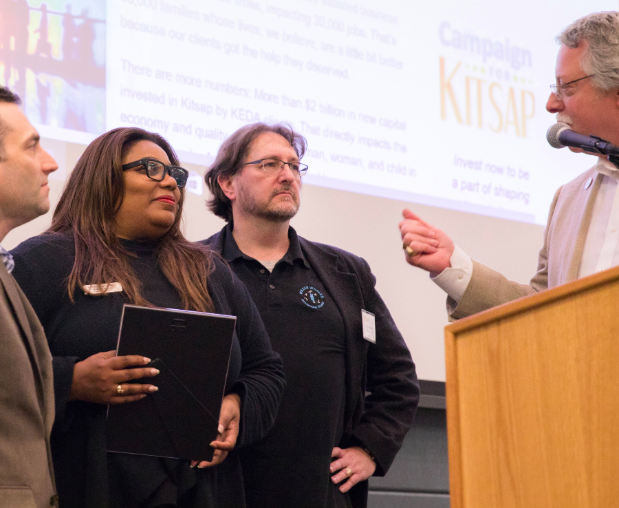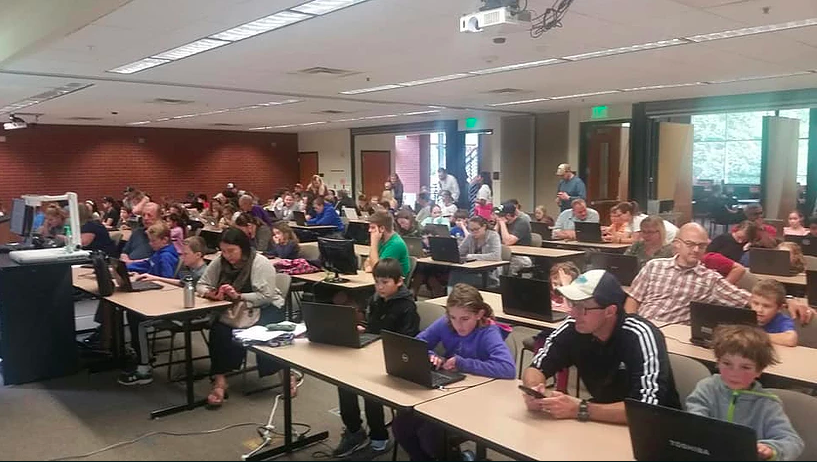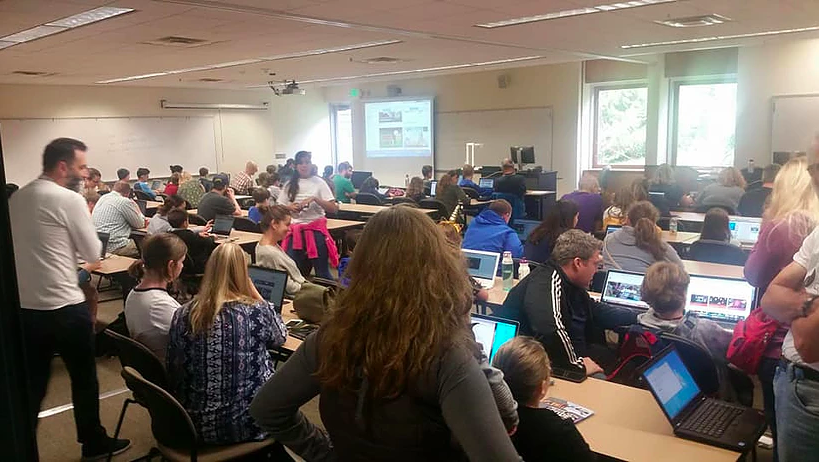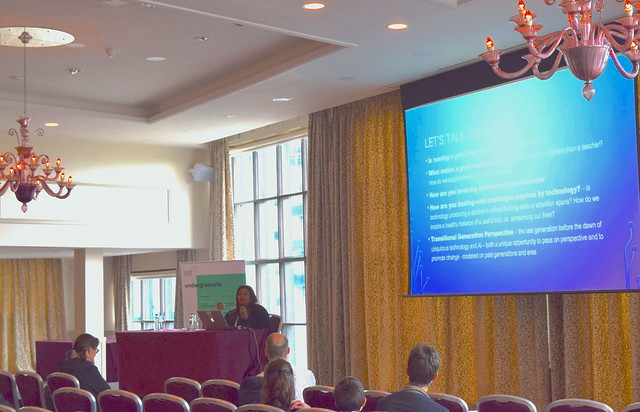
25th April 2019
How Dona’s experience of running a CoderDojo club has helped her personally
Dona, has been coding and working with computers for several decades, even though it was not her profession. Below she shares how she initially started a CoderDojo club in WestSound (Washington State, USA) and the opportunities it has given her and other young people in the locality.
I founded my leadership and management consulting firm 24 years ago and me and my partners work with Fortune 100, nonprofits, governments, and non-governmental organisations. I enjoy traveling, music, reading, racquetball, free-climbing, and a variety of activities and interests which are too many to name. Learning and adventuring are lifetime passions, and I’ve moved or relocated more than 40 times. As a recovering nomad, at my core I am an introvert and loner.

How did you first hear about CoderDojo?
As a strategic advisor and president of a technology association, I was researching initiatives the organisation could launch which would continue to provide value to the community. CoderDojo was one of a handful I reviewed. I took my family to a very large CoderDojo in Seattle to see it in action. It was immediately clear that I’d chosen wisely, and I helped the board start its own Dojo in March 2014.
The parent organisation was shifting its mission and board members were retiring or moving to other parts of the country. I felt this was an opportunity to build a talent pipeline in partnership with parents and other stakeholders in a collaborative and mixed gender setting, and CoderDojo was the best initiative for doing so.
What is your Dojo like?
Overtime the Dojo’s schedule has changed – Initially, we met every week and year round. Now we continue with biweekly sessions, but we start the season in September when schools begin, and end at the end of July since August is such a popular vacation month. Our size varies from 30 attendees to as many as 200 for larger annual events such as Hour of Code, Raspberry Jam, or Scratch Day.

It is a very mixed gender crowd, and all ages are welcome. Some attendees have been as young as 2 or 3, up to their 70s. Many of our adult mentors are female and all 4 of our primary Youth mentors are girls in high school. Each session begins with suggesting beginner, intermediate, and advanced options from a variety of sites (Code.org, CoderDojo, Scratch).
Occasionally we will host a ‘build your own website’ workshop or bring in Raspberry Pi and Kano Kits for DIY fun. Ninjas, parents, and adults are always free to work on whatever they choose and collaborate. If someone has a question, we try to get a student to help another student first. Mentors are more facilitative and help with problem-solving if students get stuck. We also encourage any attendee to showcase what they’ve worked on that day, or any other projects they’d like to show and tell.
We make it clear that this isn’t a library and noisy fun is very much allowed. Our atmosphere is loads of fun, inclusive, and encouraging.
How important is it for young people to see women in tech leadership positions?
It’s important for both genders to recognise that success and capability are present and available to all, and that women can and do lead and master STEM material and careers. By encouraging peer-to-peer collaboration in a mixed environment, students are being prepared for settings, including the workforce, where partnering with and seeing women operate at this level are natural.
There is a quote attributed to the late and great Walter Payton, who played American football for the Chicago Bears: “When you’re good at something, you’ll tell everyone. When you’re great at something, they’ll tell you.” Which is to say, I don’t give much thought to whether or not I’m a role model to other women in the tech sector. I believe in what I do and know it’s of intrinsic value to our community and society-at-large. Others can decide if the ‘role model’ label fits.

What strategies have you found useful for ensuring gender balance in your Dojo?
Early in the process, I involved my young daughter as a youth mentor. She has been coding since kindergarten or first grade. This helped attract more girls and women as potential leaders. My front-facing presence as a leader who is female and a woman of colour is not as common in our community, and even less so in the technology sector. We also actively encourage girls and women in our sessions and in the community. Our messaging and methodology have likely resulted in the mentors and volunteers we have.
There is a tool called Peachjar which delivers flyers directly into the inboxes of parents who are in subscribed school districts. Our Dojos are always promoted in every nearby regional district, including those with underserved areas and minorities. We have also advised two separate Washington State communities which wanted to launch their own Dojos. Both have a good representation of girls and minorities, including those from underserved areas.
Has running your Dojo helped you in other areas of your career or life?
Indeed. My primary professional backgrounds have been legal, and leadership strategy. Co-founding and leading a technology association and CoderDojo has also positioned me as a subject matter expert in the technology industry, and contributed to my own knowledge, skillset, and growth in that arena. It has also helped me personally since speaking and presenting regularly in front of groups or crowds are challenging as an introvert.

What are some of the highlights of running the Dojo?
When a student decides to showcase what they’ve created in front of the group and a succession of ninjas follow suit — parents and adults are beaming, all smartphones are out recording or photographing. To see the confidence and knowledge exhibited by the kids, it is brilliant and a very validating and intoxicating experience. When a large event is successful with a big crowd and buzzing activity. Attending and speaking at DojoCon 2016 was a pinnacle! Finally, many of the attendees and volunteers/mentors have become a sort of family. There are times we recognise and greet one another out and about in the community, and sometimes we debrief after a session over a meal or brew.
Find out more about the CoderDojo Girls Initiative or how you can start a CoderDojo club in your local area!